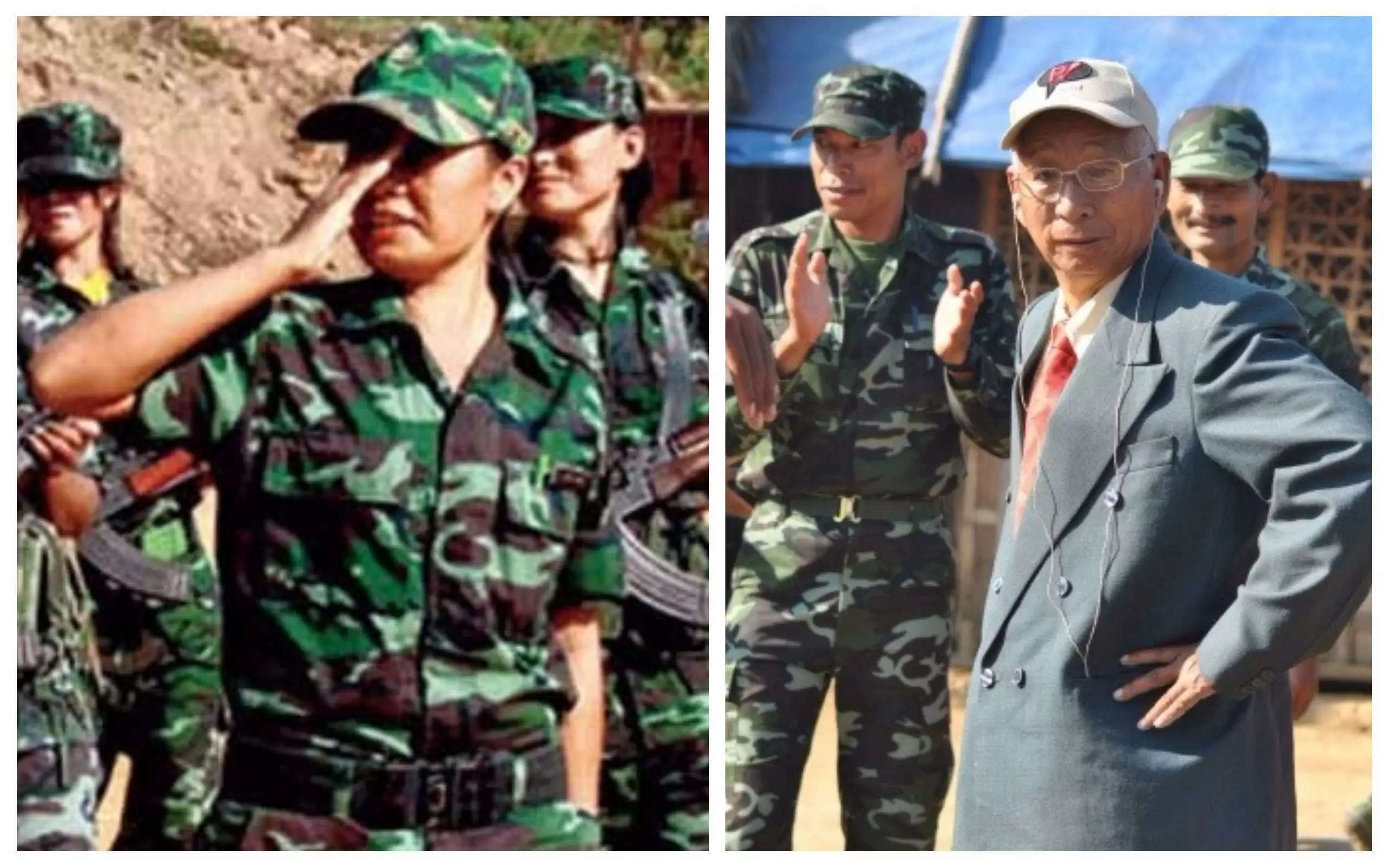Nagaland: Khaplang last will is for younger generation of Nagas to continue “to hold the torch of freedom”

Kohima, June 10, 2017: Shangwang Shanyung Khaplang, chairman of the Myanmar-based Nationalist Socialist Council of Nagaland who died on Friday night, in his last will urged the younger generation of Nagas to continue "to hold the torch of freedom".
Khaplang died at the NSCN-K council headquarters in Takka in Myanmar's Sagaing Division.
In his last will, Khaplang said: "I have done my part for the freedom of my people with the little capacity God has given me. And now, the younger generations of Nagaland need to continue the legacy left to you, like passed down to us by the elders. Never waver nor be carried away by the ideologies of the aliens that Nagas do not deserve to be a Nation."
"As a human, I have done many wrongs and forgive me all my failures in this noble venture of our cherished freedom. My sons and daughters please continue to hold on the torch of our freedom until we reach the Promised Land," Khaplang said in his will.
"I have stood under the banner of 'Nagaland for Christ' with the hope that my people may see both physical and spiritual freedom from the oppression of the ruthless occupiers," he added.
Khaplang, 77, who was popularly known as "Baba", belonged to the Hemi Naga tribe from Myanmar's Eastern Naga Hills in Sagaing Division. He had been ailing for quite sometime and also underwent medical treatment in the Yangon Civil General Hospital.
"He had protected the Naga nation from the occupational forces in the best way he can in the interest of the Naga people," a senior NSCN-K leader, who did not wish to be identified, told reporters.
The powerful rebel leader had two homes – one in China's Yunan province and another in Myanmar. He leaves behind four children, including a daughter. None of them are involved in the armed struggle.
Born in April 1940, in Waktham village in Myanmar, Khaplang sheltered at least seven rebel groups from India's Northeast in his bases in Myanmar's thickly forested Sagaing Region, bordering India. He was also chairman of the United Liberation Front of Western South East Asia (UNLFW), an umbrella organisation of various northeast-based militant groups.
Khaplang started the Naga armed struggle in the early 60s by forming the Naga Defence Force after Zapu A.Z. Phizo declared war on India. Later, he became vice chairman of the Eastern Naga Revolutionary Council.
Khaplang was instrumental in paving the way for the Phizo-led Naga National Council rebels, including his former friend-turned rival Thuingaleng Muivah, to reach China for guerrilla warfare training.
After the failure of the Shillong Accord signed between the Indian government and Phizo's Naga National Council in 1975, Khaplang and Muivah went underground and formed the NSCN.
The two Naga rebel leaders — Khaplang and Muivah along with Isak Chishi Swu – formed the National Socialist Council of Nagaland in 1980.
However, the group split in 1988, with Khaplang parting ways with Swu and Muivah due to clan rivalries between the Konyaks of Nagaland's Mon district and the Tangkhuls of Manipur's Ukhrul district.
Swu died in June 2016 in a Delhi hospital.
Khaplang also entered into a ceasefire with the central government in 1997 but abrogated it on March 28, 2015.
The National Investigation Agency had filed a charge sheet against Khaplang and announced a reward of Rs 7 lakh on him and even sent a detailed dossier on him to Myanmar through diplomatic channels.
Naga Peoples' Movement for Human Rights (NPMHR) Secretary General Neingulo Krome termed Khaplang's demise as a "rude shock".
"This is so especially at a time when the Naga people are extremely in need of experienced wisdom of their national movement leaders, to set right the course of the Naga destiny, which is being misinterpreted and re-interpreted in the present day scenario of internal conflicts," Krome said.
"We will always treasure and cherish his commitment to do what the upcoming Naga generation wants as the Naga national movement is for the well-being of future Naga generations who should live in dignity and peace," Krome said in his condolence message.
Source: News Agencies
Image is representational from internet sources

















